The Power of Place: An Interview with Erin Van Rheenen
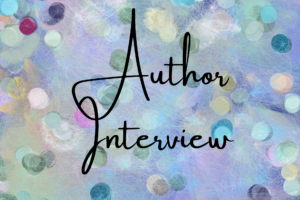 Author Erin Van Rheenen writes on her website that “[her] life has been an effort to see the beauty in being upended.” Considering how much life upends everyone on a (sometimes) daily basis, her outlook intrigues me. And so does her debut novel, You Could Be Happy Here, which is “a story of identity, belonging, and of opening your heart to a deeper understanding of kinship and home.” Mary Ellen Hannibal, award-winning science writer and author of Citizen Scientist and Spine of the Continent, said of the book, “A young woman, a tropical paradise, and a past not quite become history—Erin Van Rheenen’s new novel is a pleasure to read, full of satisfying complexities.” In addition to writing, Erin also teaches and travels—she’s even been interviewed on local TV, CNN, and Rick Steves Travel (something I think is unique to my featured authors and artists on this site!).
Author Erin Van Rheenen writes on her website that “[her] life has been an effort to see the beauty in being upended.” Considering how much life upends everyone on a (sometimes) daily basis, her outlook intrigues me. And so does her debut novel, You Could Be Happy Here, which is “a story of identity, belonging, and of opening your heart to a deeper understanding of kinship and home.” Mary Ellen Hannibal, award-winning science writer and author of Citizen Scientist and Spine of the Continent, said of the book, “A young woman, a tropical paradise, and a past not quite become history—Erin Van Rheenen’s new novel is a pleasure to read, full of satisfying complexities.” In addition to writing, Erin also teaches and travels—she’s even been interviewed on local TV, CNN, and Rick Steves Travel (something I think is unique to my featured authors and artists on this site!).
Welcome, Erin!
Christina: Congratulations on the publication of You Could Be Happy Here! The main character, Lucy, has to “rethink her place in the world, open her heart, and expand her notion of kinship and home.” Where did Lucy’s character come from? Did you learn anything about yourself as you wrote her story?
Erin: Thank you so much. Lucy comes from all the people I’ve observed over the years (myself included) who think travel or moving abroad will solve their problems. People who want transformation but aren’t always prepared to do the hard work of remaking themselves and of becoming supple enough for the world to work its magic on them.
I learned a great deal from Lucy. At first, I thought she was a lot more clueless than I was. Her Spanish isn’t half as good as mine, and she can be her own worst enemy. Eventually, I realized I had more in common with her than I cared to admit. Like Lucy, I’m always struggling to see myself and the world more clearly.
Christina: The book took two decades to write. Are you willing to share a little bit about your writing journey and the journey to publication?
Erin: For many of those years, the novel was a side project. At various points I had the time and head space to make it front and center, and I made good progress. But then I had to concentrate on things like making a living, and the manuscript sat unattended on my hard drive.
The process was a bit of a slog (especially trying to get a publisher), but it was also a joy.
I like to concentrate on the joy. Working on the novel gave me a deeper purpose, and it served as a sandbox where I could build, disassemble, and rebuild plot and character. It gave me an arena to wrestle with the personal and political questions that plagued me, like “Can tourism be a force for good?” and “Why do so many families fall apart after a parent dies, especially if there’s an inheritance involved?” Writing the book, over and over again, helped me improve my craft, and it gave me community, because I needed to reach out to others attempting the same feat or I would have gone crazy.
Christina: The cover is striking. Is it what you envisioned? Did you have input on the cover? How did the cover design process go?
Erin: You Could Be Happy Here is my first published novel but my third published book. This was the first time I felt like a had a real say in the cover selection process.
The designer came up with three options, two using paintings I’d suggested as backdrops, and one out of left field that would seem to go against my stated wishes for no “stereotypical tropical scenes” But I loved it! My protagonist is obsessed with insects and birds, another character has a scarlet macaw as a pet, and there’s a lot about tropical ecosystems in my novel. I suggested a few tweaks (I wanted the cover font smaller, and I wanted a bug added).
Christina: I love the title, too, and over on Instagram, you revealed different title choices over the years. How important is a working title to you? Can you speak about the evolution of the title (From Invasive Species to All This Way to You Could Be Happy Here)?
Erin: Arriving at my forever title was a wild ride. I don’t know how many times over the years I’ve asked friends to weigh in on various title options. One time I gave a friend a list of about a dozen titles and asked her to rank them. At the bottom of the page, I had a few more titles under the heading MAYBE. She chose MAYBE as one of her top picks. I actually considered that title for a minute or two.
I was very attached to the title Invasive Species for a long time; I thought it was the perfect way to spark a discussion about who belongs where, in both the human and animal worlds. Writer friends finally convinced me it sounded like a scientific treatise or a horror novel.
Then I came up with an anodyne option: All This Way. But it always felt like a placeholder. When I found a publisher, the editor there suggested The Freight of Bodies. Nope, I said. That makes me think of human trafficking. The same editor suggested another option, pulling a phrase from my final chapter: YOU COULD BE HAPPY HERE. Reading those words, something happened in my body. Something tingly. As a title, the words seemed to not only capture my story but to somehow extend it, to make it more.
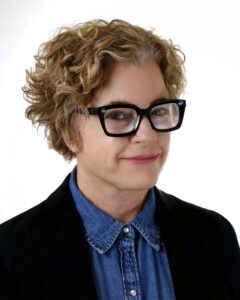
Christina: Your website states that you write “fiction and nonfiction that explores family dynamics, cultural difference, and the power of place.” What about these topics is so compelling to write about? Where do you find inspiration for bringing them to life?
Erin: Family configurations are so complex and fascinating, and they make us who we are. I’m still trying to figure out how my historical place in my family of origin has shaped me, and wrestling with what I want my role to be now and into the future. I also pay close attention to my family of choice, my husband and my friends. I recently read that someone’s hobby was their friendships. They didn’t knit or collect trolls or play the ukulele. They put their love and time into their people. Sounds like a good hobby to me!
For the cultural difference piece, I lived outside of the US for the first time when I was three years old—my father was a Peace Corps doctor in Nigeria. When I was eight, we lived in Guatemala. When I left home, I lived in Ireland for a year, then later, spent two years in Quito, Ecuador, and nearly a year in Oaxaca, Mexico. And of course I’ve spent many years in Costa Rica. I thank my parents for making travel and living abroad seem as natural as hopping the bus downtown, but also showing us that there’s a big world out there that is nothing like the one we were born into.
Power of place is important to me. I feel the natural world of rural Costa Rica is a character in its own right in You Could Be Happy Here.
Where to I find inspiration? Where don’t I find inspiration? I often feel overwhelmed with ideas. That’s when I like to zone out and watch British murder mysteries. Which as often as not, give me even more ideas. The opening to my novel comes from the question asked over and over again in these shows: Where’s the body?
Christina: Speaking of the power of place—Living Abroad Costa Rica is a practical guide to moving to Costa Rica, including everything “from visas, to job-hunting, to cultural assimilation.” What does it take to write a book like that? How did you do your research, and do you plan on writing any more travel guides?
Erin: What does it take to write a 434-page relocation guide that is mostly text? I’m not sure. Hubris? The need for your own Everest to scale? I thought it would take me six months of bouncing around the country, interviewing locals and expats and mayors and bureaucrats, in both English and Spanish. It took me two years. But I’m proud of the book I wrote, and it is immensely gratifying to hear from readers that my book has been their “Bible” when moving to Costa Rica. Living Abroad in Costa Rica has gone through five editions, so I think there was a need out there for a comprehensive road map to what for many was an unfamiliar country and culture.
Do I plan to write another travel guide? God, no. I’ve learned my lesson.
Christina: You’re a writing teacher, and you’ve been told you “run a killer Q&A.” That’s quite a compliment! In your mind, what makes an effective and informative Q&A? Any tried-and-true tips to share with those who might be planning their own sessions?
Erin: My advice is to stand your ground. Literally. For me, the first step to a dynamic presentation of any kind is to be standing while doing it. It gives you more energy, you breathe more deeply, and it lets you come from a position of embodied power. You’ve got to know your subject inside out, but also be ok with admitting to what you don’t know. For questions that stump me, I’ve had success opening the question up to the audience, the hive mind, which shows that I value their expertise as much as my own. It reinforces what I truly believe: we’re all students and teachers both.
Christina: In 2021, you wrote about being a cancer survivor and how it took you a long time to be able to publicly call yourself that. You said one reason “it took [you] so long to come out of the cancer closet was that [you] could hardly manage [your] own response, let alone other people’s.” That statement resonated with me, how much or little control we have over other people’s reactions. Three questions: First and most important, how are you doing? Second, did a single event prompt you to come out of the closest? And finally, any words of wisdom for those who might be hovering in their own closet?
Erin: I’m glad my comments resonated with you! And I’m doing well; thanks for asking. Five years NED (no evidence of disease). What prompted me to come out of the cancer closet was that I was thinking of leaving Facebook (which I continue to think about), but Facebook was the social network where I had the biggest community. I felt like some of what I’d been through, cancer-wise, might help others, so I shared my story on Facebook as a kind of swan song. Except I’m still on there! (Insert cringe emoji.)
For those who might be hovering in their own cancer closet, I think you have to be ready. I was ready, and I was glad I shared my news, however belatedly. A few comments on my cancer post were women sharing their diagnosis for the first time publicly. And a former co-worker contacted me via DMs. She’d just been diagnosed with a breast cancer similar to mine. We had many talks about treatment options and the emotional and physical toll the disease takes. I recommended a support group to her that I believe she still goes to. If I hadn’t posted, I wouldn’t have given those other women the chance to share their own experiences or tap me for advice. Long story short: I wanted to be of service.
Christina: What’s next for you?
Erin: There are so many stories I’d like to get back to. Every writer has notebooks full of half-finished books or one-liners that might open out into something bigger. One idea that has me in its jaws right now springs from when I retraced my great-grandmother’s 1941 train journey from Portland, Oregon, to Chicago. She’d just lost her daughter (my mother’s mother, who died at 29) and was visiting her sister and friends in the Midwest to try to assuage the grief. I took the same trip on Amtrak recently, with my great-grandmother’s train journal to keep me company. She really brought her fellow passengers to life! My own train trip was surprisingly awful for many reasons that may or may not make it into the story. But I don’t even know yet what genre this story calls out for – a humorous travel essay, a reported memoir, a speculative historical novel set on a train, or something else entirely.
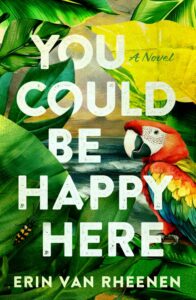
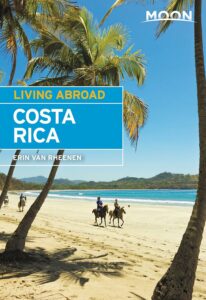
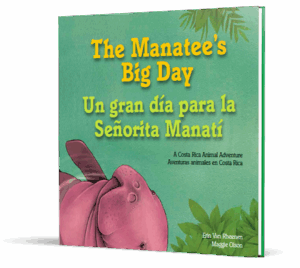
Erin can be found in multiple places!
Website: https://erinvanrheenen.com/
Instagram: @erininprint
Facebook: @erin.vanrheenen
Goodreads: @Erin_Van_Rheenen
Thanks to Erin for agreeing to this interview! Feel to leave a comment!

I so appreciate your excellent interviews question and for spreading the word about my new book. Thank you!
And I appreciate your excellent answers!
Loved this interview!
Thanks so much for reading!